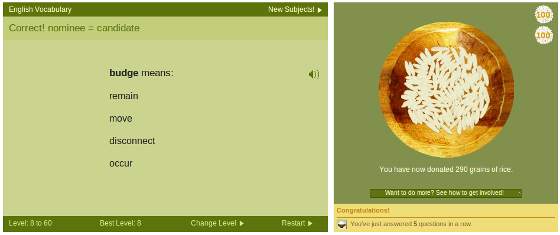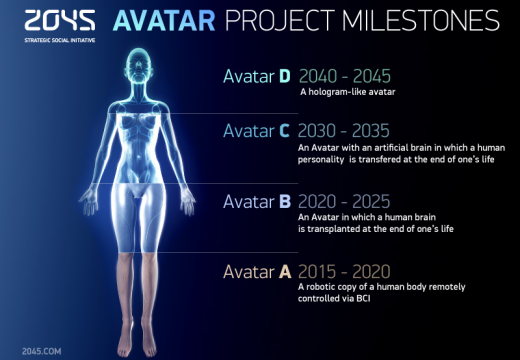
2. Play games that help the world
While learning games help you acquire knowledge there are productive games that allow you to apply the knowledge and skills you already have to a good use, all the while having much fun. These types of games one way or another help a good cause of some sort, from helping the poor to helping achieve certain scientific discoveries. Here are some good examples:
It can’t be simpler. Answer quiz questions and with each correct answer they donate 10 grains of rice to the hungry. The rice is actually paid by advertisements you see below the quiz every time you give a correct answer. Simple, effective, for a good cause, yet fun.
Proteins are involved in just about every process that happens in your body, and they are consisted of chains of amino acids folded into a specific shape that corresponds to the protein’s function (such as recognizing and binding with glucose to extract energy from it). The shape they take is naturally the most stable shape it can take, but given the complexity of some protein structures these shapes are extremely hard for scientists and even computers to predict. That’s where the game comes in.
It counts on human intuition and competitiveness to help solve these puzzles. As you solve the puzzles you’re contributing to better scientific understanding of protein and therefore to potential cures for various diseases that involve proteins. And it’s a fun game to boot, with nice graphics, helpful tools, graphical and audio cues. You might just get hooked.




Follow Us!